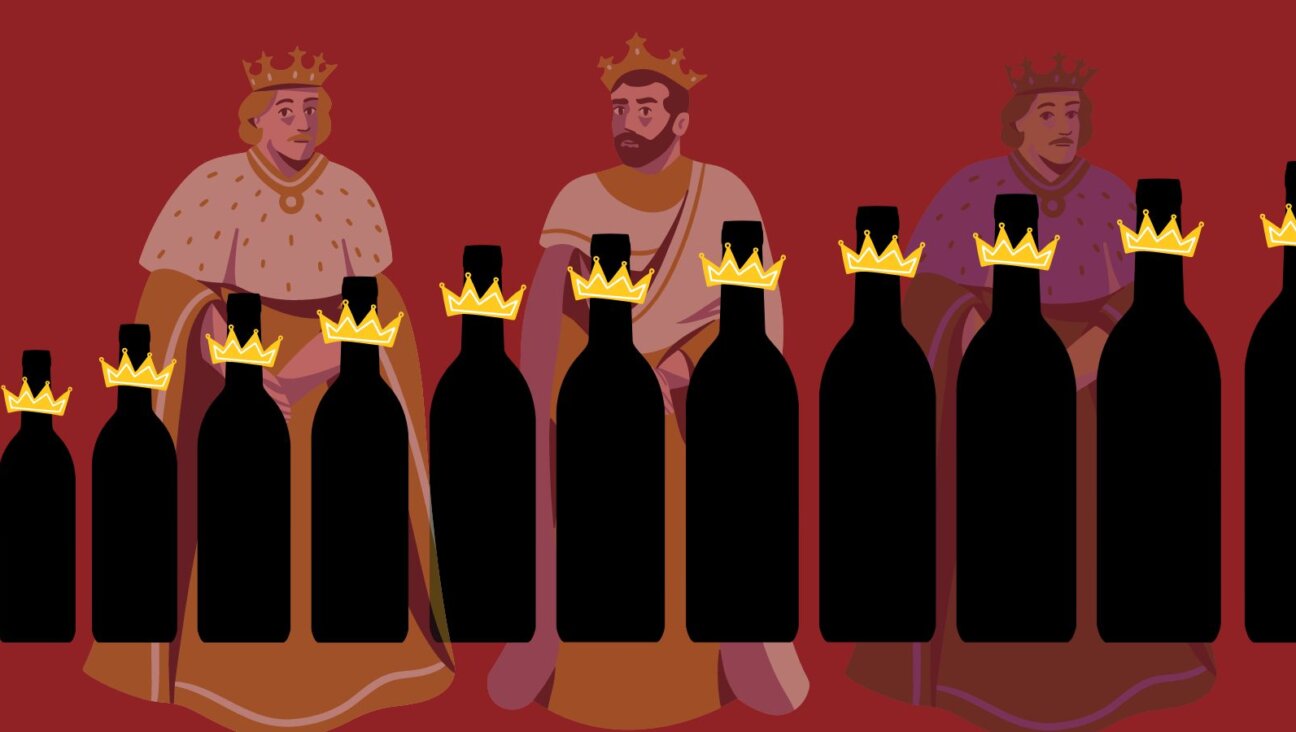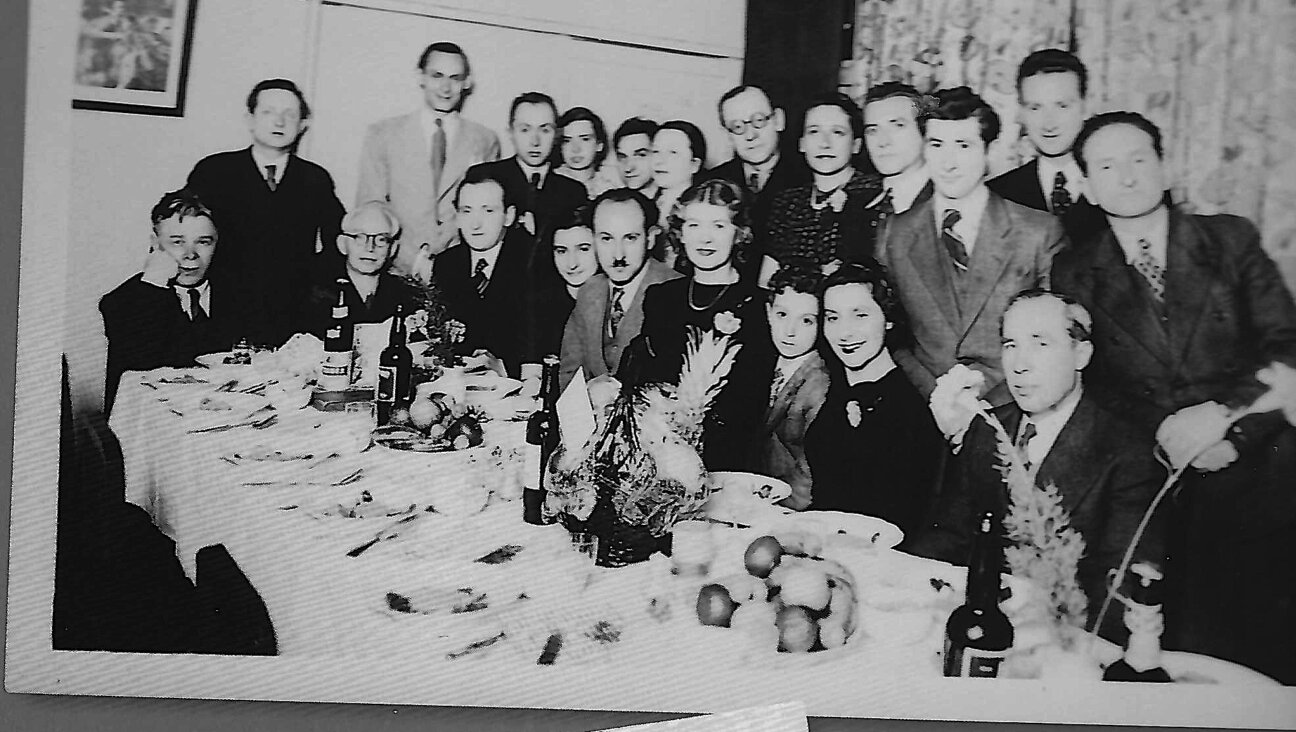Dr. Ruth’s Other Interest: Ethnography
Ruth Westheimer is best known as “Dr. Ruth,” the tiny Jewish woman who dispenses sex advice in a distinctive German accent. But the renowned psychosexual therapist also happens to be an accomplished amateur ethnographer, having studied groups ranging from the Ethiopian Jews to Trobriand Islanders, often with a particular focus on family dynamics.
Her latest subject is the Druze, a secretive Arab sect that broke off from Shi’ite Islam in the 11th century and now resides in Israel, Syria and Lebanon. The Druze of Israel are, of course, famously loyal to the Jewish state, with men from the community serving proudly in the Israeli army. Less well known is the sect’s militant commitment to endogamy (Druze who marry outsiders are ostracized by their families and community and, in the case of Druze women, sometimes even murdered) and its fervent belief in reincarnation (every Druze who dies is believed to be immediately reborn as a Druze infant, and Druze children occasionally experience an uncanny connection with strangers thought to be friends and relatives from their former lives).
Westheimer explored these aspects of Druze culture in her new documentary, “The Olive and the Tree: The Secret Strength of the Druze,” which aired last month on PBS stations nationwide. A companion book of the same title, which she co-wrote with veteran Israeli journalist Gil Sedan, is now out from Lantern Books. Westheimer took time out from her busy schedule — she’s now working on a documentary about Bedouin women in Israel — to discuss the Druze with the Forward’s Daniel Treiman.
Daniel Treiman: How did you choose the Druze?
Ruth Westheimer: I chose the Druze because I wanted an answer to the question: How is it possible that these good-looking young men serve in the Israeli army for three years, and they’ll only marry Druze women? My question, basically as an educator, especially since I’m so interested in the family, was: What is it in the early socialization of the education of the family life of these Druze that permit them for all of these many years to know that they can only marry within the Druze society? And in the documentary, for example, there is a mother who tells the story of a 5-year-old coming home from kindergarten saying, “I’m marrying so and so.” The mother laughs. Her mother is there and says, “Why are you laughing?” The mother says, “He is only 5 years old.” And her mother says: “This is not a laughing matter. We are friends with everybody; we help everybody. We only marry Druze.” And you have to teach that already in early childhood.
DT: What was the most important insight you took away from studying the Druze?
RW: Their tremendous, number one, hospitality. And number two, the strength in terms of family values and beliefs and how they adhere to it. I also was fascinated with the idea of reincarnation, but I was very careful because it’s a secret strength of the Druze and the religious part is certainly secret. So I was very grateful for the little bit of insight that I was able glimpse about that issue of reincarnation.
DT: Do you think that they have any similarities with the Jewish population?
RW: Yes, for example, during times of stress, they go ‘underground.’ They don’t flaunt their religious observance and beliefs, and that’s what the Jews did in Spain — that’s what the marranos did. The other thing, I think the strong similarity, is the desire of making sure that the Druze as a group survives, and that’s why they don’t permit intermarriage.
DT: Do they have anything to teach us?
RW: What we can learn from them is the importance of family life. For example, the religious pita maker, the baker [from the documentary], says that in their orthodox tradition — not everybody adheres to it — women should be home for the first two years of the baby’s life. And what I think we have to learn from them is the importance of family relationships, the importance of early-childhood emphasis, and that they try to adhere to it.
DT: Do you think that they will be able to succeed in preserving their identity living in a modern, open society?
RW: I just hope that whatever modernity brings to them, that they will take some of those qualities that they have right now into modernity. But I certainly think — and I’m not a prophet, so I can’t predict — but I think it definitely will change.
DT: So you think they’ll adapt? Or do you think they’ll disappear?
RW: They’ll adapt!
DT: The Druze are a fairly secretive people, but did you manage to find out anything about their sex lives?
RW: I did not ask. Now, they did ask me some questions, which I can’t tell you…; however, I will say loud and clear: The questions that they did whisper to me were not different from any other place in the world.

I hope you appreciated this article. Before you go, I’d like to ask you to please support the Forward’s award-winning journalism this Passover.
In this age of misinformation, our work is needed like never before. We report on the news that matters most to American Jews, driven by truth, not ideology.
At a time when newsrooms are closing or cutting back, the Forward has removed its paywall. That means for the first time in our 126-year history, Forward journalism is free to everyone, everywhere. With an ongoing war, rising antisemitism, and a flood of disinformation that may affect the upcoming election, we believe that free and open access to Jewish journalism is imperative.
Readers like you make it all possible. Right now, we’re in the middle of our Passover Pledge Drive and we need 500 people to step up and make a gift to sustain our trustworthy, independent journalism.
Make a gift of any size and become a Forward member today. You’ll support our mission to tell the American Jewish story fully and fairly.
— Rachel Fishman Feddersen, Publisher and CEO
Join our mission to tell the Jewish story fully and fairly.
Our Goal: 500 gifts during our Passover Pledge Drive!























